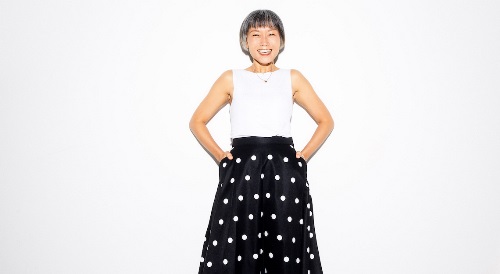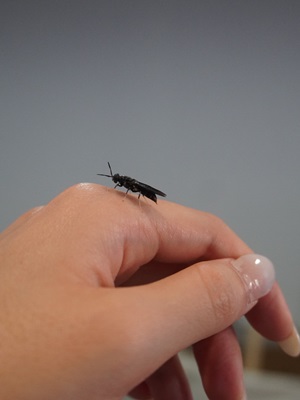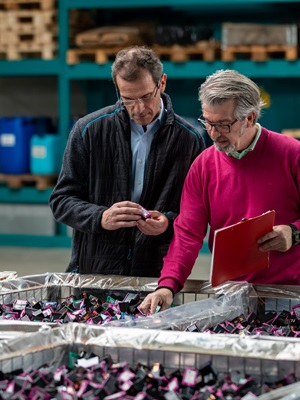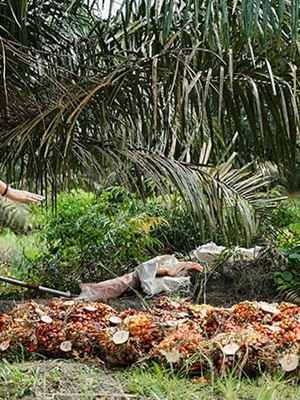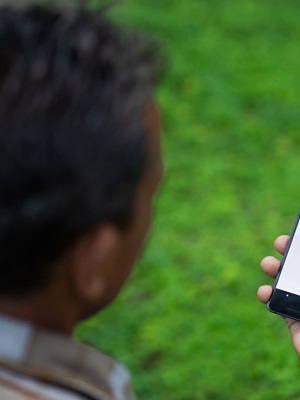This was my life up till the end of 2015. Consumerism at its best, well expressed in Barbara Kruger’s significant collage ‘Untitled (I Shop Therefore I Am)’
I loved shopping and fashion. The moment I started earning an income, I would buy anything and everything because I can. I worked hard and I deserved ‘it’. Whether it’s online, offline, high end, high street, first hand, secondhand, vintage, whatever, I will buy them all! To the point my mom and my ex-boyfriends have to beg me to stop. To which I would respond “It’s my money, why do you care?”. Said so by a self-proclaimed shopaholic.
I accumulated so much stuff I had to turn one of my bedrooms into a walk-in wardrobe. While that sounds like every girls’ dream - It really was a nightmare when I stare at my exploding wardrobe thinking “I have nothing to wear!”. This creates a false sense of lack, which leads me to buy more.
Back then, I worked at the best club in Singapore - Zouk. Dressing up was a daily call of duty. It didn’t help when I founded a fashion concept store ‘Blackmarket’ in 2008. I ended up shopping in my own shop! I was often in the limelight, featured in the media, invited to parties and events. I used to think I couldn't be caught wearing the same dress twice! I live up to that tall order, at the expense of my pockets. When I stop wearing something, I would sell them at the flea markets, and take the money to buy new ones. This vicious cycle went on for more than a decade.
I work hard, I shop and party even harder. I will be out and about from Tuesday to Sunday, and Monday will be my ‘off-day’. My very happening and unhealthy lifestyle nearly took my life. I almost drowned on a trip to Krabi, and experienced a spiritual awakening. Shortly after, my retail business folded as we could not sustain the rental when it increased to almost double.
All of a sudden, I was left with nothing but a lot of time, and a lot of clothes.
I stared at the fashion collection I have amassed and questioned
Has my life been about shopping and accumulating stuff up to this point?
Is life about working hard, and spending harder to buy stuff I hardly even use?
Am I supposed to die as a consumer, and that’s it?
On my tombstone - it will state something like ‘Jasmine was a Great Shopper.’
Surely life is more than that!
I nearly died and couldn't bring all my favourite things with me. Why am I spending so much money, time and energy on stuff? I used to attach my identity to the clothes I wear, what I could afford to buy, but not anymore! At that moment, all I could think of was selling the things I own for survival. I wanted change.
Fast forward to 2015, I was given an opportunity to live and work in Malaysia. I wanted change, and a change of location could be a good start. I knew I couldn't take my walk-in wardrobe with me so I had to downsize my life = my wardrobe, seriously. I was actively selling on carousell app, at flea markets, organising home garage sales, passing on some things to my family and friends, I even left items outside my house for my neighbours to take as they wish, and finally, donated the rest to a charity organisation.
I felt light immediately. Even my bedroom lit! I successfully downsized from a walk-in wardrobe to a single rack, and moved to Malaysia at the end of 2015, looking forward to change.
But guess what? When I arrived in Malaysia, the currency exchange got me excited about shopping again. 1 SGD = RM3 (then). Now it's even more attractive - 3.5! When you divide by 3, everything seems so cheap! The year-end festive sales makes it even more irresistible. New job, new beginning, new clothes, right? So I started shopping again.
Soon, my wardrobe was filled to the brim and I needed to spring clean to sell at the flea market or donate to a charity. Waaaaaaaaaait a minute, these are all too familiar. I was sucked right back into the vicious cycle I just got out of! I moved to Malaysia, hoping for a change. While my location changed, I didn’t. I was still that same old shopaholic. Old habits die hard.
My turning point came when I met the Zero Waste Malaysia NGO, at the end of 2017. That was the first time I came across the term ‘Zero Waste’.
My first thought was:
How is it possible to achieve absolutely zero waste when everything around us is packed and wrapped in some sort of packaging?
While it is true that it’s impossible to produce absolutely zero waste, that doesn’t mean we take zero action. So I decided to take action and challenge myself for a radical change and started my zero waste journey in 2018 by applying these 5R principles in sequence:
Refuse what we don’t need
Reduce what we do need – fashion included
Reuse what we have over and over again, and switch from disposables to reusable
Recycle right, and recycle responsibly what you cannot refuse, reduce and reuse
Rot or compost the rest. Return nutrients to the soil that grows our food.
These are the 5R principles by Bea Johnson - writer of Zero Waste Home, and founder of the global zero waste movement. I used to go straight to recycling, thinking I'm such an eco-friendly person. But there are more ‘R’ before ‘Recycling’ we can practise to aim for zero waste daily.
I added one more ‘R’ at the beginning - ‘Rethink’. Because I believe everything starts from our mindset. I seriously need to rethink my consumption habits, and practise - ‘Think’ before I buy, and ‘Think’ before I throw.
What is Zero Waste?
will.i.am sums it all up - ‘Waste isn't waste until we waste it’
Zero Waste lifestyle is not about consuming more or buying more eco friendly products - just so we look the part. It is also not about producing or consuming nothing at all or creating absolutely zero waste.
It is about carefully and intentionally designing, producing and consuming without waste as an outcome, which aligns with the United Nations Sustainable Development Goal #12 - Responsible consumption and production.
The aim to reduce our precious resources going to the incinerator, landfill, ocean, and the environment. It is not about what we should buy, but rather, what we choose not to buy, and use what we already have, that is a true zero waste spirit. Besides, the most environmentally friendly product is the one we didn’t buy.
Other than going zero waste, I also committed to zero fast fashion and shopping. I was prepared to wear the same wardrobe collection for the rest of my life until I was introduced to the concept of swapping. I went to two swap events in Malaysia and I was hooked. Swapping became my new shopping. Friendly to the planet, people, and my pockets. It is the perfect solution for anyone who wants to enjoy fashion more sustainably.
When I move back to Singapore in 2020, instead of waiting for someone to run a swap event, I partner with other like-minded individuals to do it together. We founded Cloop – which stands for ‘Closing the loop for fashion for good’ by providing sustainable shopping alternatives such as Fashion Swap and Open Wardrobe honour-system thrift store popups, and Curated Bag orders. We also partnered with an ISO-accredited recycler on the textile recycling bin project with an aim to double the recycling rate in Singapore by introducing Cloop ‘yellow’ bins across the island (bit.ly/mapcloopbins).
Besides donating appropriate items to beneficiaries in due season, Cloop channelled
part of the proceeds from our swap/shop events to various charities (cloop.sg/beneficiaries) - Turning the negative impact of fashion into positive actions.
Reminder: Donation is not a solution to our overconsumption
Mindful consumption is.
Three years since running Cloop, my wardrobe remains the same - a single rack.
Although I must confess, I do buy new items once in a blue moon, a pair of shoes, a dress from a local brand, and nothing from fast fashion or ultra fast fashion brands. Not after I watched ‘The True Cost’ documentary. This excerpt never fails to give me goosebumps after watching. Shopping is an addiction no one really talks about because it is so good for business.
Do we have to stop shopping entirely to save the planet?
I chanced upon an article by The Guardian. Thankfully, we don’t have to stop shopping entirely to save our planet. But ‘When people buy less stuff, you get immediate drops in emissions, resource consumption, and pollution’. How powerful is that? Would you consider ‘Buy Less, Choose Well, and Make it Last.’
I will leave you with The Buyerarchy of Need chart by Sarah L., a quote which resonated with me while I was on my quest to living with less, and 7 tips on how I curb the need to shop excessively at my website Smiles Like Green Spirit.
I hope my sharing will free you from the bondage of consumerism.
Posted 20/03/2024



